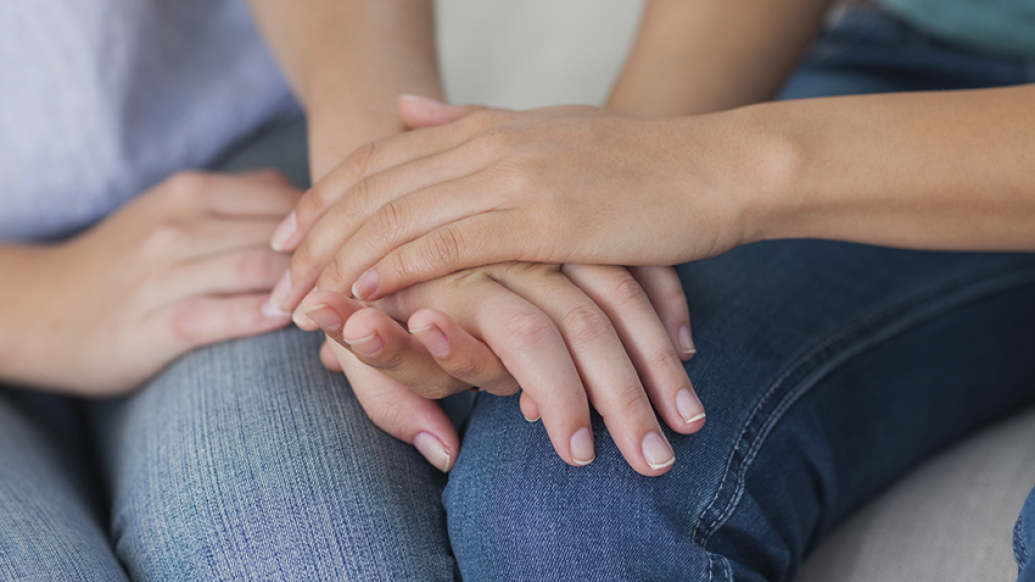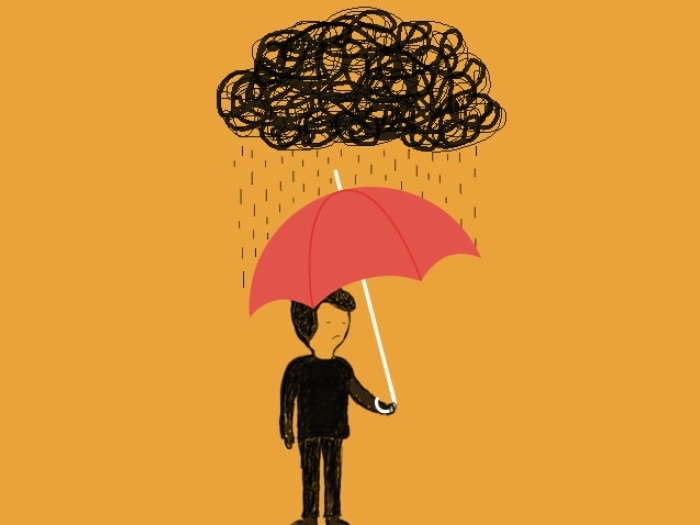The shock of a cancer diagnosis can have lasting emotional effects both during and after treatment. A U-M psychiatrist offers ways for patients to cope.
1:23 PM
Author |

Unexpected and highly emotional, a cancer diagnosis may trigger internal reactions similar to those found in people with post-traumatic stress disorder from other jarring life events.
Here, however, "the cancer is the trauma," says Michelle Riba, M.D., a clinical professor of psychiatry at the University of Michigan. "Patients may have a hypervigilance or a mood problem, they may get depressed — worries about recurrence, the next scan, going back to work."
SEE ALSO: 7 Ways to Support a Friend with a New Cancer Diagnosis
That, combined with heightened external stressors such as anxieties tied to finances or child care could leave an already vulnerable individual at a disadvantage.
Which is why patients' mental health ought to have as much importance as their physical condition.
Although a low stress level hasn't yet been linked to longer life expectancy, it is crucial during recovery from cancer, says Riba, who has studied the topic extensively.
"It's important from a health perspective to try to understand that," says Riba, who also directs the PsychOncology Program, a collaboration between the U-M Comprehensive Cancer Center and Depression Center to treat cancer patients who also suffer from depression. "This is something that is part of collaborative, ongoing care."
She provides several strategies to help.
Talk openly with your doctors
Beyond the requisite bodily evaluations, many clinicians employ the "distress thermometer" — a scale and survey checklist developed by the National Comprehensive Cancer Network (NCCN) — to gauge one's state. The American College of Surgeons Commission on Cancer urges that all cancer patients be screened for distress and, if needed, seek psychosocial care.
That's key: About one-third of cancer patients experience significant distress, but only 5 percent get help, according to the NCCN.
Doctors, likewise, might gain insight simply by having a conversation that covers both emotional and medical ground.
"A lot of the time, patients assume it's anxiety when their heart is racing; it could be from the medication they're taking," Riba says, noting that optimal care is provided when patients detail their medical and personal history in full.
Accept (and guide) a helping hand
In many cases, those facing cancer find themselves with a group of folks volunteering their help. There's no shame in asking for what you need, especially if offers are nonspecific. Those with fatigue or who are reluctant to accept could allow someone else to delegate and manage the flow.
Common tasks might include rides to oncology or chemotherapy appointments; babysitting; yard-care assistance; and providing hot meals (send food in disposable containers to avoid confusion over returning dishes, Riba says).
Be efficient when possible
Because some of her patients travel long distances to receive cancer care, Riba knows that the commute is tough ("Patients often don't get asked: 'Is this a good day to come for your scan?'"). When possible, both sides should work together to plan appointments to cut down on mileage and stress.
SEE ALSO: Beat 'Boris': 10-Year-Old Boy Smashes His 3-D Printed Tumor
Such consolidation can also be applied at home. Those overwhelmed by phone calls and texts from well-wishers, for instance, could elect to have a friend or relative provide group updates by email. Or start a personal blog to distribute information (snail mail, Riba says, is often a welcome alternative for patients).
Eat healthfully and get exercise
Improvements in medications that help avert chemo-related nausea have, in fact, led to some patients gaining weight during recovery, but that's often due to a junk-food-heavy diet, Riba says. Your doctor can make food suggestions or connect you with a dietitian.
Exercise, when feasible, is vital. Studies indicate that outdoor activity may have a greater effect in easing the thinking and memory lapses known as "chemo brain," Riba says. Exercise also strengthens and tones the body, and is a great way to spend time with others. Even a daily walk, Riba says, "allows you to take charge in a preventive way to help yourself."
Kick bad habits
Amid a cancer patient's stress and worry, it's easy to allow negative behaviors to manifest. "They may drink too much alcohol or smoke; they may isolate themselves," Riba says. Such reactions are counterintuitive to healing.
And they also might exacerbate routine-affecting triggers such as poor sleep cycles, which, in turn, could throw off patients' schedules and hinder their ability to return to work or even follow a medication regimen meant to improve their health.

Explore a variety of health care news & stories by visiting the Health Lab home page for more articles.

Department of Communication at Michigan Medicine
Want top health & research news weekly? Sign up for Health Lab’s newsletters today!





